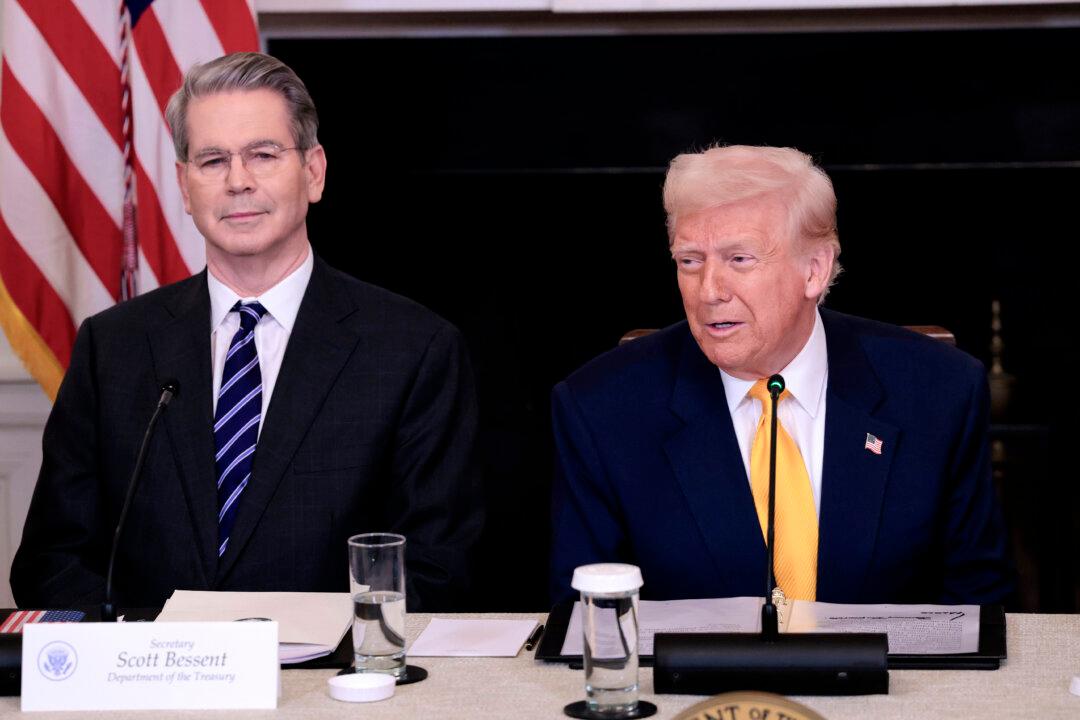A Look at Trump’s Tariff Plan to Revive the US Auto Industry
Tariffs are a component in the toolkit Trump is using to achieve his goal of restoring domestic manufacturing, experts say.
premiere
[PREMIERING NOW] Antidepressants Are Having Horrific Effects on Sexual Function: Dr. Josef Witt-Doerring
Dr. Josef Witt-Doerring treats patients suffering from post-SSRI sexual dysfunction (PSSD), and protracted withdrawal.

Ex Libris: Harry Truman
In this installment of our ‘Ex Libris’ series, we look at the books that influenced the last US president who guided the country through post-WWII changes.

Hamlet’s Lent
The penitential imagery in Shakespeare’s ‘Hamlet’ is a lens through which readers can experience Hamlet’s turmoil and tragic transformation.

The Struggle for Unity in the Soul
A Greek philosopher and a Russian author share similar insights into the nature of the soul.
Most Read
Top Stories
▶[PREMIERING NOW] Antidepressants Are Having Horrific Effects on Sexual Function: Dr. Josef Witt-Doerring
Dr. Josef Witt-Doerring treats patients suffering from post-SSRI sexual dysfunction (PSSD), and protracted withdrawal.
Ratcliffe, Gabbard Say No Classified Information Shared in Leaked Chat
The CIA chief and the director of national intelligence faced questions about their participation in the Signal group chat during a Tuesday Senate hearing.
What to Know About the Trump Administration’s Signal Chat Leak Episode
A journalist for The Atlantic reported he was erroneously included in a Trump administration group chat where officia discussed renewed U.S. strikes on Yemen.
Where the Ukraine–Russia Cease-Fire Stands After US-Led Talks
The negotiations this week have begun to bear some fruit, but agreements are scarce on the future of a cease-fire agreement.
Experiences in the Wild Helped Prepare This Congressman for The Hill
Eighteen years after his first run for Congress, outdoorsman Jeff Crank finally hit his target.
Reported Arrests of China’s Top Military Brass Indicate Political Crisis, Experts Say
Some analysts have said that the purge suggests that political infighting within the communist regime has intensified.
Vance to Visit Greenland as Denmark Condemns US ‘Pressure’ on Territory
The vice president will join his wife and national security officials on a trip to Greenland as the territory pushes back on Trump’s plans for U.S. control.
Federal Judge Blocks 3 Agencies From Disclosing Personal Data to DOGE
The March 24 order is another setback to the Trump administration and DOGE.
Measles Cases Rise in Texas as DC Confirms New Case
As of March 25, Texas has seen 327 confirmed measles cases.
Trump Orders Security Clearance Revoked for Law Firm Employing Mueller Prosecutor
The order calls for the revocation of any security clearances held by any member of the law firm as well as the termination of any government contracts.
Shen Yun Is ‘A Great Representation of the Values That the Chinese' Can Bring to the World, Says Navy Officer
Navy officer Chris Arnold said Shen Yun Performing Arts is wonderful.
Senate Confirms Bhattacharya as NIH Chief
The former Stanford University professor was outspoken about COVID-19 pandemic measures.
Judge Temporarily Blocks Detention of Columbia Student Facing Deportation Over Pro-Palestinian Protest
A federal judge says the government failed to present sufficient evidence to justify detaining the student protester as her immigration case proceeds.
Tracking Trump’s High Level Appointments, Senate Confirmations
The Senate is undertaking the confirmation process for the president’s new administration.
Day in Photos: Greece’s Independence Day, Rescued Lions From Ukraine, and Australian Airshow
A look into the world through the lens of photography.
Senate Confirms Florida Businessman John Phelan as Navy Secretary
Phelan said his business background will help the Navy address long-standing problems in shipbuilding and budget management.
Trump Signs Order Aimed at Preventing Illegal Immigrants From Voting
The order directs officials to enforce laws on voting and voter registration.
Trump Says Government Likely Won’t Be Using Signal After The Atlantic Fallout
But the president said it ’may be forced to use it' in the future.
New York Seeks More Federal Transit Funds; Transportation Secretary Pushes Back
Gov. Kathy Hochul cites the MTA’s national importance while Transportation Secretary Sean Duffy demands accountability and a safety plan.
Trump Orders Declassification of FBI’s Crossfire Hurricane Russia Investigation
‘Now you’ll be able to see for yourselves,' Trump said of the investigation files.
‘Bob Trevino Likes It’: Relying on the Kindness of Strangers
‘Bob Trevino Likes It’ reminds us that valuable human relationships can occur randomly and that spiritual connections can be far more powerful than bloodlines.
Special Coverage
Special Coverage




















![[PREMIERING NOW] Antidepressants Are Having Horrific Effects on Sexual Function: Dr. Josef Witt-Doerring thumbnail](https://www.theepochtimes.com/_next/image?url=https%3A%2F%2Fimg.theepochtimes.com%2Fassets%2Fuploads%2F2025%2F03%2F24%2Fid5830669-250324-ATL_Dr.-Josef-Witt-Doerring_HD_TN.jpg&w=1200&q=75)










































![[LIVE Q&A 03/26 at 10:30AM ET] What’s Being Missed in the Government Signal Leak Debate | Live With Josh](https://www.theepochtimes.com/_next/image?url=https%3A%2F%2Fimg.theepochtimes.com%2Fassets%2Fuploads%2F2025%2F03%2F25%2Fid5831313-032625_REC-600x338.jpg&w=1200&q=75)















































